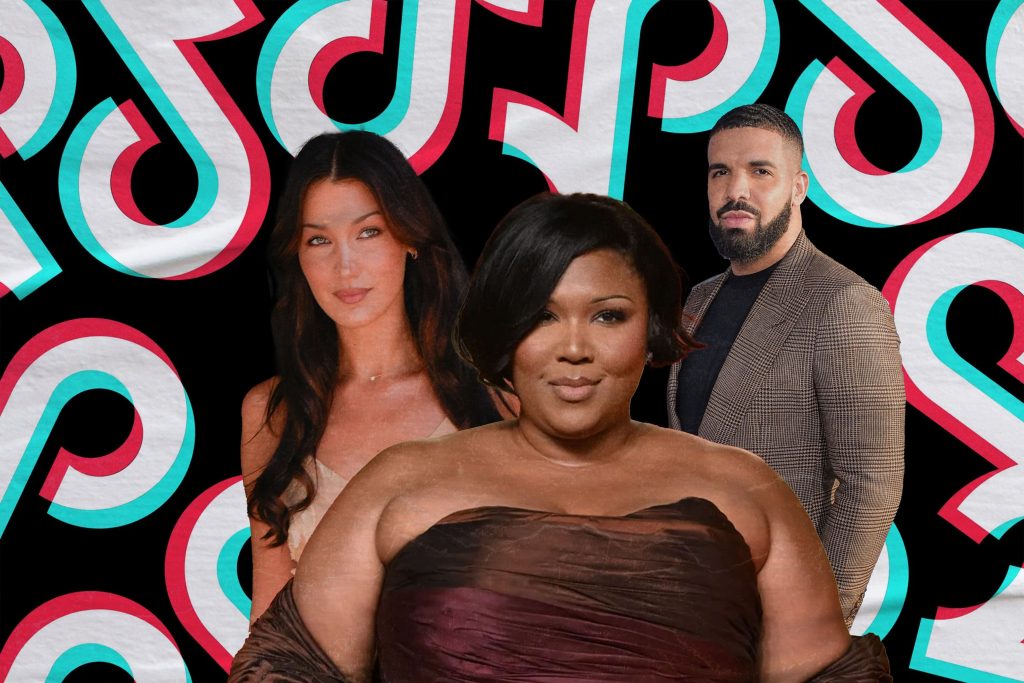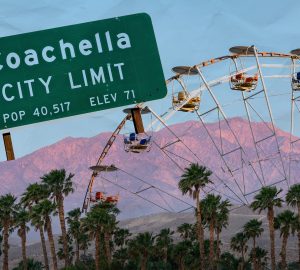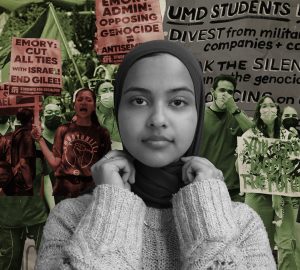
The Met Gala always marks the beginning of May. Celebrities adorn their best fits, reactions are posted on Twitter and YouTube, and maybe some will get lucky and be named “best dressed.” It’s an event that comes and goes like the weather: hot one day and cold the next. However, this year, things were different.
Protestors lined up just blocks away from the event, criticizing the elites’ bourgeois celebration as Israel invaded Rafah, only further displacing the Palestinian people. On social media, edits and compilations comparing the gala to Suzanne Collins’s “The Hunger Games” were posted, putting the oddly similar situations side by side. In the novels, a group of kids are forced into a violent situation while the elites play dress up. Collins has cited the desensitization to mass death as the very reason she wrote the books. Something that we, as Americans, have no doubt taken part in, even before Oct. 7.
However, this rightful criticism has landed in the hands of a wider audience: TikTok. Iamblakeley was one of the initial creators to criticize these celebrities and call for a #Blockout. They specifically called out fellow creator, HaleyyBaylee, for her “Let Them Eat Cake” video. The social media star, with nearly 10 million followers, dressed up in an extravagant dress to celebrate her invitation to become an interviewer for the gala. This video exploded into a movement to collectively cancel or block celebrities and influencers.
A deeper dive
The #Blockout24 is a widely unorganized movement to block celebrities and influencers who either haven’t spoken out or are actively against Palestine. As mentioned before, the Met Gala and HaleyyBaylee were the main catalysts. Haley eventually posted an apology video following the controversy. She explained that she was never at the main gala, but rather was hired by E! as a carpet interviewer. There is decent criticism to be had about using the “Let them eat cake” sound bite. While already being a popular sound on TikTok, the history behind the phrase only adds to the dystopian, “Hunger Games” vibes.
This phrase comes from the infamous quote by Marie Antoinette, a former queen of France who was assassinated during the French Revolution. It was said in response to the growing poverty and complaints from the French people who couldn’t even afford bread. However, her ignorance of the situation on the ground led her to say such an elitist phrase: “Qu’ils mangent de la brioche.” It was a string of words that only illustrated the French monarchy’s neglect of its citizens, something that can certainly be equated to the situation in Gaza.
This then led an entire slew of creators to make their own lists of celebrities who also deserved the same smoke. The main targets on TikTok are the Biebers, the Kardashians, and even Beyoncé.
Is this effective protesting? Or unnecessary?
While there is valid criticism regarding celebrities who have been quiet on this issue, is it an effective form of protest? It’s important to understand how targeted boycotting works and the flaws within this movement. A recent example of untargeted boycotting surrounds Starbucks. There is a concept called Boycott, Divestment, and Sanctions (BDS) which has been used most prominently in pro-Palestinian and anti-South African apartheid movements. It complies with a carefully selected list of companies that have been determined effective targets to pressure the state of Israel. Many well-intentioned pro-Palestian supporters strayed from this list regarding the coffee giant.
Many who jumped to boycott Starbucks may not even know why it began in the first place. Members of the Starbucks union wore Palestinian pins to work and some were subsequently punished by the company. According to Workers World, due to pressure, the union was able to negotiate with Starbucks and come to a conclusion on Feb. 27. Yet, many still focus on the company, unaware of the victory that came months ago. It’s a viral focus on social media apps like TikTok, but it takes away from the attention of companies actually on the list. With that victory already won, we should be focusing our attention back on the main pressure points in Israel.
There is this issue among social media activism, which — as previously covered in our TikTok ban article — can bring about greater awareness, but it’s also used as a way to assert moral superiority over others without having to advocate in other ways. There is not nearly enough coverage on McDonald’s, Domino’s, and Airbnb. Many naive supporters believe that your consumption determines your politics. The truth is, there is no ethical consumption under capitalism. But if you’re going to boycott, do it right.
There is a reason why Palestinian union members and organizations have compiled this list of companies. It is about pressure, not about vengeance. This list keeps supporters on track so that they are less likely to focus on companies that don’t directly impact the Israeli economy. As the official BDS website states, “We focus on companies that play a clear and direct role in Israel’s crimes and where we think we can have an impact.” I worry that a focus on celebrities is not effective enough to bring about real change in Gaza.
Another criticism of the #Blocklist is that its unorganized nature lends itself to targeting good-faith people. Creators who have shared their lists with their audiences have put people like Billie Eilish, Drake, and the Hadids on their lists. But all of these individuals have been outspoken about the ongoing genocide. Billie Eilish and her brother, Finneas, were a part of Artists for Ceasefire at the Oscars. Drake, despite all his faults, was one of the first to sign a letter calling for a ceasefire in Gaza, according to Billboard. Gigi and Bella Hadid have not only been outspoken since Oct. 7 but are Palestinians themselves. The official website also shares names like Lizzo, who recently supported the college protestors, but neglects to add names like Noah Schnapp and Amy Schumer, who have both been avid Zionists.
It seems as if the people putting together these lists may not be doing their research. Instead, they’ve been adding open supporters or people who they feel haven’t sufficiently advocated. Many of the creators have also called this “the death of celebrity culture,” but the conversation has been entirely focused on the happenings of celebrities. While some creators might want to focus on Gaza, some confusingly are pushing this aspect of “celeb culture.” Which, on top of the unfair targeting, makes the goal confusing. It’s moved the focus from the atrocities in Gaza to what influencers are doing wrong, only adding to its ineffectiveness.
It’s not dissimilar to the black square protests in 2020 where people posted black squares on social media in support of Black Lives Matter. It’s purely performative and doesn’t require you to contribute in any meaningful way. The black square protests blocked actual activists from getting their message out, and it also led others to wrongfully be criticized when they called out its ineffectiveness. The outcome of these forms of “activism” unintentionally distracts from the movement’s message and offers no educational purpose.
this #BlackOutTuesday thing is insanely fucking dumb. you’re effectively rendering a vital resource protestors use for safety and also to get their message out. https://t.co/aV3HUOQ244
— hasanabi (@hasanthehun) June 2, 2020
If you find value in #Blockout and still desire to participate, don’t end your activism there. Don’t use it as purely aesthetics or an excuse. Get involved, go to protests, and spread information about Gaza, the Nakba, and Israel’s other atrocities. Don’t stop there, keep all eyes on Palestine!























